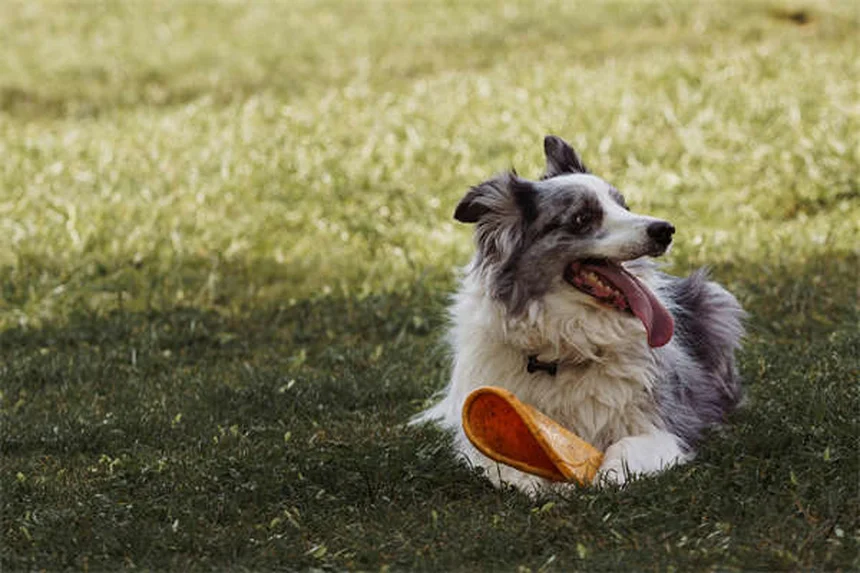Can gerbils get tapeworms? Absolutely - and here's what you need to know! As a gerbil owner myself, I've learned that these tiny parasites can sneak into your pet's system through contaminated food, water, or even insects. The good news? Tapeworm infections in gerbils are treatable if caught early. In this guide, we'll break down everything from spotting symptoms (like sudden weight loss) to effective treatments your vet can prescribe. You'll also learn my top prevention strategies to keep your furry friend safe. Let's dive in!
E.g. :19 Pet-Dangerous Beauty Products You Need to Know About
- 1、Understanding Tapeworms in Gerbils
- 2、Spotting the Signs: Is Your Gerbil Infected?
- 3、Fighting Back: Treatment and Recovery
- 4、Prevention: Stop Tapeworms Before They Start
- 5、Final Tips for Happy, Healthy Gerbils
- 6、Beyond the Basics: Lesser-Known Tapeworm Facts
- 7、The Human Connection
- 8、Alternative Prevention Methods
- 9、Myth Busting: Common Tapeworm Misconceptions
- 10、The Future of Parasite Control
- 11、FAQs
Understanding Tapeworms in Gerbils
What Are Tapeworms?
Let me break it down for you—tapeworms are flat, ribbon-like parasites that live inside animals (yep, including your furry little gerbil). They’re sneaky invaders that hitch a ride through contaminated food, water, or even pesky insects like cockroaches. There are two main culprits: the dwarf tapeworm (Rodentolepis nano) and the rat tapeworm (Hymenolepis diminuta). Fun fact: the dwarf tapeworm can jump to humans, so wash those hands after handling your gerbil!
How Do Gerbils Get Infected?
Imagine your gerbil exploring its cage—sniffing, nibbling, maybe even tasting something it shouldn’t. Boom! Tapeworm eggs from contaminated feces, food, or water sneak in. Even insects like beetles or fleas can play delivery service for these parasites. Here’s a quick comparison of the two tapeworm types:
| Type | Size | Risk to Humans |
|---|---|---|
| Dwarf Tapeworm | Small (2-4 cm) | Yes |
| Rat Tapeworm | Larger (up to 60 cm) | No |
Spotting the Signs: Is Your Gerbil Infected?
 Photos provided by pixabay
Photos provided by pixabay
Symptoms to Watch For
Here’s the tricky part—tapeworms are masters of disguise. Your gerbil might seem totally fine, but subtle clues like dehydration, diarrhea, or sudden weight loss could signal trouble. Ever noticed your gerbil turning up its nose at food? That’s a red flag. Severe cases can lead to muscle wasting, so don’t ignore a picky eater!
But wait—how do you know if it’s just a bad day or a tapeworm? Great question! Unlike us, gerbils can’t complain about stomachaches. That’s why regular vet check-ups are key. A simple fecal exam under a microscope can reveal those pesky eggs.
Diagnosis: What to Expect at the Vet
Picture this: you bring your gerbil to the clinic, and the vet asks for a fresh stool sample. (Yes, it’s as awkward as it sounds.) They’ll scan it for tapeworm eggs—tiny but telltale. If positive, don’t panic! Treatment is straightforward.
Fighting Back: Treatment and Recovery
Medication Options
Your vet might prescribe antihelminthic drugs—fancy term for “tapeworm killers.” These come in easy-to-administer forms: mixed into food or water. Pro tip: hide the meds in a favorite treat (gerbils love sunflower seeds!). For severe cases, fluids or vitamin supplements might be needed to boost recovery.
Did you know dehydration worsens tapeworm effects? It’s true! Electrolyte therapy can be a game-changer for weakened gerbils. Think of it as their version of sports drinks.
 Photos provided by pixabay
Photos provided by pixabay
Symptoms to Watch For
After treatment, deep-clean that cage! Tapeworm eggs can linger, so scrub every corner with pet-safe disinfectant. Bonus: a clean cage also deters flea hitchhikers. Follow your vet’s advice—maybe add monthly deworming to your gerbil’s spa day routine.
Prevention: Stop Tapeworms Before They Start
Hygiene Habits
Let’s be real—no one wants to deal with parasites. Here’s your action plan:
- Wash hands before/after handling your gerbil (especially kids!).
- Use bottled or filtered water—tap water can harbor eggs.
- Store food in sealed containers to block insect access.
Routine Deworming
Why wait for symptoms? Preventive deworming every 3-6 months keeps your gerbil safe. Ask your vet about safe schedules—overdoing meds can backfire. And hey, a healthy gerbil means more playtime and fewer vet bills!
Final Tips for Happy, Healthy Gerbils
 Photos provided by pixabay
Photos provided by pixabay
Symptoms to Watch For
Notice sudden weight loss or lethargy? Don’t Google—call the vet! Early treatment avoids complications. Remember, gerbils hide illness well, so trust your gut (pun intended).
Fun Fact
Gerbils groom constantly—which ironically spreads tapeworms if they’re infected. Solution? Regular cage cleanings break the cycle. Plus, a tidy cage means fewer “ick” factors for you!
Featured Image: iStock.com/photomaru
Beyond the Basics: Lesser-Known Tapeworm Facts
The Surprising Lifecycle of Tapeworms
Did you know tapeworms can live years inside a host? These parasites have a wild lifecycle that would make a sci-fi movie jealous. First, eggs hatch in the gut, then larvae migrate through tissues before settling down as adults. Some species even form cysts in organs - talk about unwanted squatters!
Here's something that'll make you scratch your head: Why don't tapeworms digest themselves along with their host's food? The answer lies in their unique biology. They absorb nutrients directly through their skin-like covering, bypassing the need for a digestive system. Nature's version of a straw!
Tapeworms in the Wild vs. Captivity
Wild gerbils face way higher tapeworm risks than our pampered pets. In nature, they're exposed to contaminated soil, predator feces, and infected insects daily. Our domestic buddies have it easy with clean cages and vet care. Check out this comparison:
| Environment | Infection Rate | Common Sources |
|---|---|---|
| Wild | 60-80% | Soil, insects, water |
| Captivity | 5-15% | Contaminated food, bedding |
The Human Connection
Can You Really Get Tapeworms from Your Gerbil?
Let's address the elephant in the room - yes, but it's extremely rare. The dwarf tapeworm (Rodentolepis nana) is the main concern, especially for kids who might forget to wash hands. I once met a zookeeper who joked, "The only thing my gerbil ever gave me was happiness... and maybe one questionable stomachache."
How likely is transmission really? Unless you're sharing food directly from your gerbil's mouth (please don't), the risk is minimal. Proper hygiene cuts the already tiny risk to practically zero. Still, it's good motivation to keep those hand sanitizers stocked!
When Pets Affect Human Health
This brings up a bigger picture - the concept of zoonotic diseases. While tapeworms get all the attention, other pet-related health issues like allergies or scratches are far more common. The CDC estimates only 1 in 1,000 pet-related illnesses come from parasites. The rest? Mostly preventable through basic care.
Alternative Prevention Methods
Natural Prevention vs. Medication
Some gerbil owners swear by natural preventatives like pumpkin seeds or garlic. Do they work? The science is mixed. While pumpkin seeds contain compounds that may discourage parasites, they're no substitute for vet-approved treatments. Think of them like vitamins - helpful support, but not a cure.
Ever wonder why garlic isn't a standard treatment? Turns out, allium plants (garlic, onions) can actually be toxic to small animals in large doses. Another case where grandma's remedy might do more harm than good. When in doubt, consult your vet before trying home treatments.
The Role of Diet in Prevention
A strong immune system is your gerbil's best defense. Feeding high-quality pellets with proper protein levels (around 12-15%) keeps their gut healthy and less parasite-friendly. I like to compare it to us eating our veggies - not exciting, but it works!
Pro tip: Rotate fresh veggies like carrots or broccoli as occasional treats. The fiber helps maintain digestive health, creating an environment that's less welcoming to unwanted guests. Just avoid sudden diet changes that could stress their system.
Myth Busting: Common Tapeworm Misconceptions
"You Can See Tapeworms in Feces"
Hollywood loves showing visible tapeworm segments in stool samples, but reality is less dramatic. Most gerbil tapeworms are microscopic in egg form. Those "rice-like" segments people describe? Those come from much larger species that typically infect livestock, not small pets.
Here's a funny thought - if your gerbil had tapeworms big enough to see with the naked eye, they'd probably be the size of a hot dog! Small pets get small parasites, which is why vet diagnostics are crucial for accurate detection.
"Tapeworms Always Cause Weight Loss"
While weight loss is a classic symptom, some infected gerbils actually maintain or even gain weight. How? The parasites can alter metabolism in unpredictable ways. I've seen cases where the only symptom was increased appetite - the gerbil was eating for two (or twenty, counting the tapeworm segments)!
This variability is why annual checkups matter, even for pets that seem perfectly healthy. As the saying goes, "An ounce of prevention is worth a pound of cure" - or in this case, worth preventing a pound of parasites!
The Future of Parasite Control
Emerging Research on Natural Defenses
Scientists are studying how wild gerbils naturally resist parasites better than domestic ones. Early findings suggest diverse gut microbiomes play a key role. Some zoos are already experimenting with probiotic supplements to boost pets' natural defenses. Could yogurt for gerbils be the next big thing?
Another promising area is pheromone research. Some studies show certain scents naturally repel parasite-carrying insects. Imagine a future where gerbil cages come with built-in "no bugs allowed" scent technology!
Advances in Diagnostic Tools
Veterinary medicine is catching up to human tech with rapid PCR tests for parasites. Instead of waiting days for lab results, vets might soon diagnose tapeworms during your appointment. The downside? These advanced tests currently cost about as much as a year's supply of gerbil food.
But like all technology, prices should drop as methods improve. Within a few years, checking for parasites might be as quick and easy as scanning a barcode. Until then, good old fecal tests remain the gold standard.
E.g. :Tapeworms in Gerbils | PetMD
FAQs
Q: How do I know if my gerbil has tapeworms?
A: Here's the tricky part - tapeworms are sneaky! Your gerbil might seem fine at first, but watch for subtle signs like diarrhea, dehydration, or sudden weight loss. Unlike us, gerbils can't tell you when they feel sick, so I always recommend regular vet check-ups. A simple fecal exam can detect tapeworm eggs under a microscope. Remember that dwarf tapeworm (the kind that can spread to humans) often shows no obvious symptoms - another reason why prevention is so important!
Q: Can humans get tapeworms from gerbils?
A: Yes, but only with the dwarf tapeworm type (Rodentolepis nano). Here's how it happens: if your gerbil has tapeworm eggs in its feces and you accidentally ingest them (maybe from unwashed hands), infection can occur. That's why I always wash my hands thoroughly after handling my gerbil or cleaning its cage. Kids are especially vulnerable, so teach them proper hygiene too. The good news? Rat tapeworms (Hymenolepis diminuta) don't infect humans - but they're still bad news for your pet!
Q: What's the best way to treat tapeworms in gerbils?
A: Your vet will likely prescribe antihelminthic medication - special drugs that kill tapeworms. These usually come in easy-to-use forms that mix with food or water (I hide mine in sunflower seeds - my gerbil's favorite!). For severe cases, your vet might add fluid therapy or vitamin supplements. But here's my pro tip: always finish the full course of treatment, even if symptoms improve. And don't forget to deep-clean the cage to eliminate any lingering eggs!
Q: How often should I deworm my gerbil?
A: Most vets recommend preventive deworming every 3-6 months, but ask your vet for a personalized schedule. I've learned that overdoing medications can cause problems, so never deworm without professional advice. Factors like your gerbil's age, health status, and living conditions matter too. For example, gerbils in multi-pet households or outdoor enclosures might need more frequent treatments. My vet suggests combining deworming with regular check-ups for best results.
Q: Can tapeworms kill my gerbil?
A: While rare, severe untreated infections can be dangerous. Here's why: tapeworms steal nutrients, leading to weight loss and muscle wasting. Dehydration from diarrhea compounds the problem. But don't panic - with prompt vet care, most gerbils recover fully. The real risk comes from ignoring symptoms. That's why I always tell fellow owners: if your gerbil stops eating or seems lethargic, don't wait - see the vet immediately. Early treatment makes all the difference!
